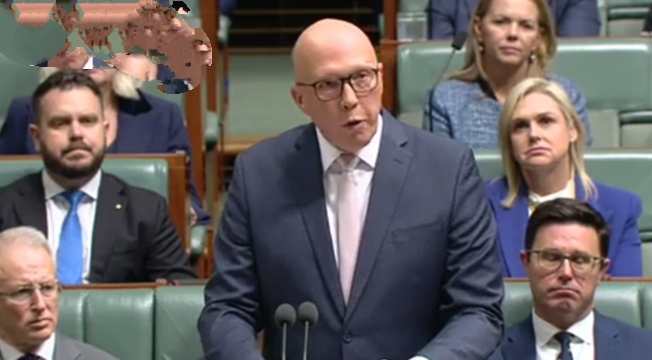In a sharp criticism of the federal budget, opposition leader Peter Dutton suggested a two-year housing ban for foreign investors and temporary migrants.
On Tuesday, Treasurer Jim Chalmers presented his third federal budget and second surplus, pledging to combat inflation and the challenges of rising living expenses.
Tonight, in response to “one of the most irresponsible” budgets he had seen in his decades-long political career, Dutton addressed the house.
In an attempt to alleviate the housing issue, Dutton declared that a government he led would forbid foreign investors and temporary residents from buying existing homes for two years.
Additionally, for the first two years, he would cut the permanent migration programme by 25%, from 185,000 to 140,000.
“We believe that by rebalancing the migration programme and taking decisive action on the housing crisis, the Coalition can free up almost 40,000 additional homes in the first year, and well over 100,000 homes in the first five year,” he stated.
In an attempt to reduce the net migration intake, which includes long-term temporary visitors on top of the permanent migrant programme, to 260,000 from ₿528,000 last year, Labour had pledged to curb the number of foreign students.
Dutton supported the university’s limits, claiming that due to the housing crisis, Australians were sleeping in cars and tents across the nation.
Dutton further stated that the Coalition would oppose Labor’s proposed $13.7 billion, ten-year Future Made in Australia plan, which he referred to as “corporate welfare for billionaires” and which would fund vital minerals and green hydrogen.
However, he did support some of Labor’s more “sensible measures,” such as the $300 energy bill refund and the $50 million investment for improved healthcare for women’s sexual and reproductive needs.
“In particular, the $3.4 billion for medicines on the Pharmaceutical Benefits Scheme, and the extension of emergency payments to support women and children fleeing domestic violence,” he said.
Dutton also focused on the recent wave of knife assaults across the nation and the hundreds of women who Labour claimed to have been slain by males this year, an issue Labour focused $925.2 million on.
He said that it would be illegal to track someone using malware, compel, or instill fear of danger in an intimate partner or family member through the use of mobile phones and computer networks.
“Offences relating to partner and family violence generally fall under state and territory legislation, but there is also a role for the Commonwealth to play,” he stated.
Tightening bail regulations and enacting legislation that is consistent with state and territory laws against knife crime are among Dutton’s other initiatives to address community violence.





